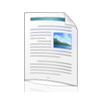Une vision totale du livre
- Auteur : Martin, Henri-Jean
- Résumé en allemand : Der Autor gibt in einem Interview seine Definition des schriftlichen Kulturguts wieder: Bücher, welche die Gesellschaft in der Vergangenheit beeinflusst haben. Der ehemalige Direktor der Stadtbibliothek von Lyon (1962-1970) erwähnt die Bereicherung des Schriftguts unter seiner Leitung und verwirft die begriffliche Unterscheidung von öffentlichem Lesedienst und Sondersammlungen. Mit Bezug auf die wissenschaftliche Arbeit bestimmt er die Rollen des Bibliothekars und des Wissenschaftlers und untersucht den Stellenwert der Geschichte des Buchs.
- Résumé en anglais : In this interview Henri-Jean Martin gives his definition of written heritage: books which have influenced society in the past. Director of the Municipal Library in Lyon from 1962 to 1970, he evokes the enrichment of its patrimony that he has led and challenges the conceptual difference between public librarianship and heritage collections. In the field of research, he defines the librarian's role and that of the researcher and raises questions around the place of the history of the book.
- Résumé en espagnol : En esta entrevista, Henri-Jean Martin da su definición del patrimonio escrito: los libros que han influenciado las sociedades del pasado. Director de la Biblioteca municipal de Lyon de 1962 a 1970, éste evoca aquí los enriquecimientos patrimoniales que ha llevado a cabo y recusa la diferencia conceptual entre lectura pública y fondos patrimoniales. En el ámbito de la investigación, precisa los papeles del bibliotecario y del investigador y se interroga sobre el lugar de la historia del libro.
- Résumé : Dans cet entretien, Henri-Jean Martin donne sa définition du patrimoine écrit : les livres qui ont influencé les sociétés du passé. Directeur de la Bibliothèque municipale de Lyon de 1962 à 1970, il évoque les enrichissements patrimoniaux qu'il y a menés et récuse la différence conceptuelle entre lecture publique et fonds patrimoniaux. Dans le domaine de la recherche, il précise les rôles du bibliothécaire et du chercheur et s'interroge sur la place de l'histoire du livre.
- Paru dans le numéro : n°5 : Patrimoines
- Licence de diffusion : Tous droits réservés
- Format : Fichier XML
- Étendue : 17720
- Date de publication : 2004
- Langue : fr
- Sujet(s) : patrimoine écrit
- Type de ressource : Text
Ce document est également disponible dans le format suivant :

